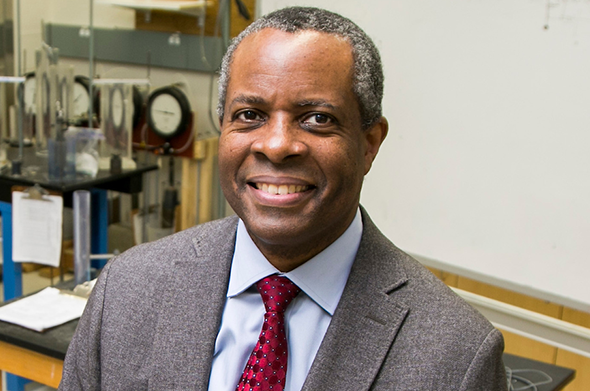Service learning transformation

Chris Swan, associate professor in the Department of Civil and Environmental Engineering and Dean of Undergraduate Education for the School of Engineering, was determined to bring real-world training to engineering education when he started his career in 1986. “I struggled through [my undergraduate program early on], but the key for me was all of a sudden, I started to see the application of all that math, science, and other often abstract things they require you to take,” he wrote in a featured chapter of Transformative Teaching: A Collection of Stories of Engineering Faculty’s Pedagogical Journeys. ”I wanted to pursue a Ph.D. with practical experience because that’s what helped me learning things.”
Swan valued the practical aspects of his lessons early in his teaching career. “It wasn’t just ‘here’s the formula’ and trying to get to the mathematics of the formula, but saying, ‘here’s the formula, let me tell you why it works and how it works and where it is applied.’” He found that engineering concepts need to be tangible – to the extent that the application of the concept made the underlying mathematics and science more interesting.
The largest development in Swan’s teaching philosophy occurred when he introduced his students to service-based learning projects with no known outcomes or solutions. Students began applying concepts that they discussed in class, but discovered that they needed to incorporate skills beyond the advanced engineering principles that they had studied. Students had to consider how their decisions would impact economies, communities, and the quality of life in the surrounding area.
Noticing that students wanted to investigate concepts beyond the scope of engineering principles, Swan shifted his focus from “why does service-based learning engage these students?” to “how can I bring aspects of service learning to non-service-based pedagogy?” Swan’s lectures now engaged students in non-technical engineering concepts during each class period. He pushed his students to investigate the context surrounding a project, and to allow those findings to inform the design process.
Swan recognizes the impact that service-based learning has had on his career, and he has encouraged these experiences to guide his teaching philosophy at Tufts. “A faculty member is someone who actually provides the best education that they can for their students, [and] doing [projects] where people are engaged is the key part,” he said. “Not just doing the technical expertise, but actually learning about both their technical and non-technical professional skills. That’s the best education I think we can provide to our students.” He continues to investigate the benefits of service-based learning and hopes to make this style of learning more sustainable for engineering instructors.
Transformative Teaching: A Collection of Stories of Engineering Faculty’s Pedagogical Journeys contains narratives from engineering educators who developed teaching strategies that differed from the ways in which they were taught as undergraduate students. These stories serve as a catalyst for instructors to reflect upon their own teaching methods. The book was edited by Arizona State University engineering professors Nadia Kellam and Brooke Coley, and University of Texas-Austin STEM teaching evaluator Audrey Boklage.
Department:
Civil and Environmental Engineering